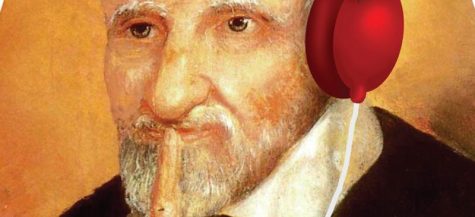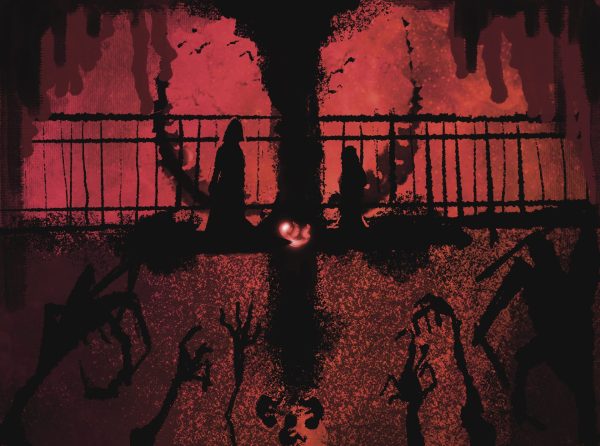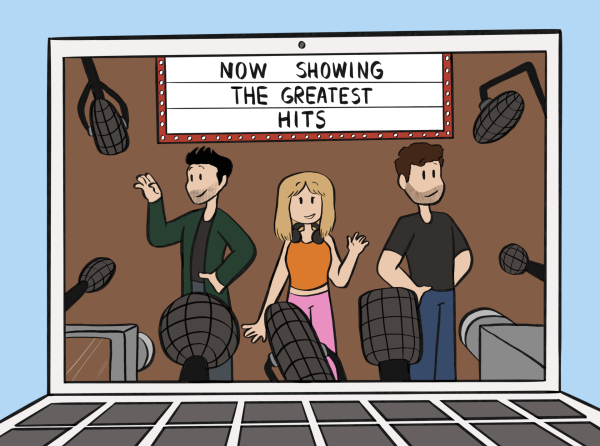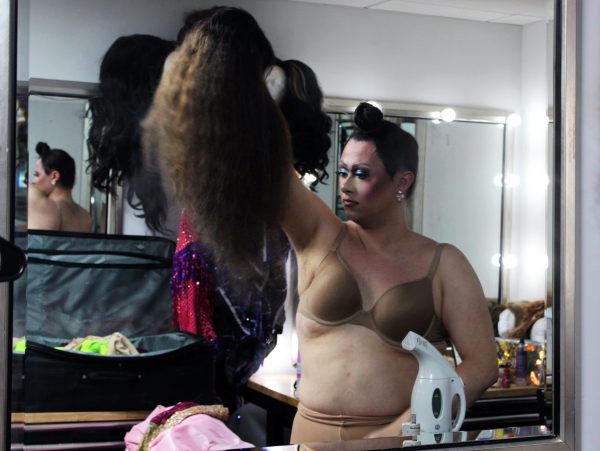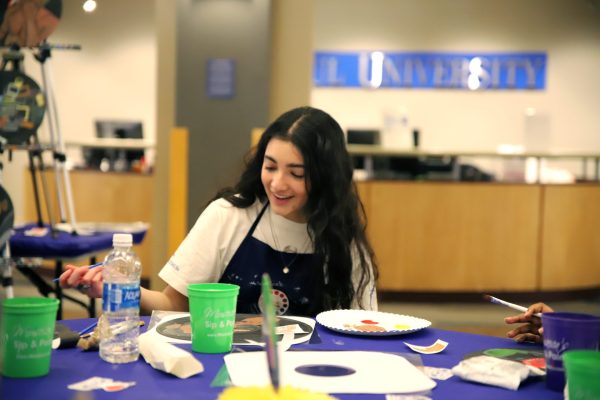“Native Son” and the fight for identity
February 18, 2018
On Sunday, Feb. 18. the Theatre School wrapped up a short, nine-day run of its striking production of “Native Son.”
After relocating to Chicago’s South Side in the 1930s during The Great Migration, 20-year-old Bigger Thomas finds work in the house of rich, white Mr. Dalton to support his mother and siblings. The plot shifts when one night, in an ironic attempt to avoid trouble with whites in power, Thomas commits a heinous crime against them, provoking a gut-wrenching chain of events that causes him to evaluate his place as a black male in an oppressive, white society. From there, the audience watches Thomas run away and attempt to escape his fate, fall short and meet an inevitable destiny.
Based on the 1940 novel written by African American author Richard Wright, the production thoughtfully explores the effects of racism and oppression. Being filled with stunning special effects, engaging music and accurate period-reflective accents and costumes, the message of the production is never lost. Throughout, the play depicts the plight of a black male trying to maintain his black identity in a racially divided society, echoing the struggle for identity and acceptance many black Americans and people of color continue to experience.
Mikael Burke, an MFA student and the director of “Native Son,” hopes audiences watch the play and emerge with a better understanding of racism, its “poisonous” effects, and the difficulties that come with moving forward through oppression.
“What we’ve tried to do is set up this experience (where) people can have a momentary physiological sense of what it feels like to constantly be checking yourself against this idea of what people think you are and what you can be,” Burke explained.
In a November 2017 interview with Yale Repertory Theatre, Theatre School alumna Nambi E. Kelley, who wrote the play adaptation of “Native Son,” explained that she was writing the script during the time George Zimmerman was acquitted in the killing of 17-year-old Trayvon Martin.
“I felt like it was an absence of empathy for the black man—the black boy, really,” she explained.
For Kelley, Wright’s intent with “Native Son” was to explore the gradual psychological effects of racism, as well as how daily racial provocations can affect a human being.
“As a child, I loved Bigger,” Kelley said. But as she got older, she said she grew to understand that Wright’s intention for the novel wasn’t to make readers love him, but “to understand what made him.”


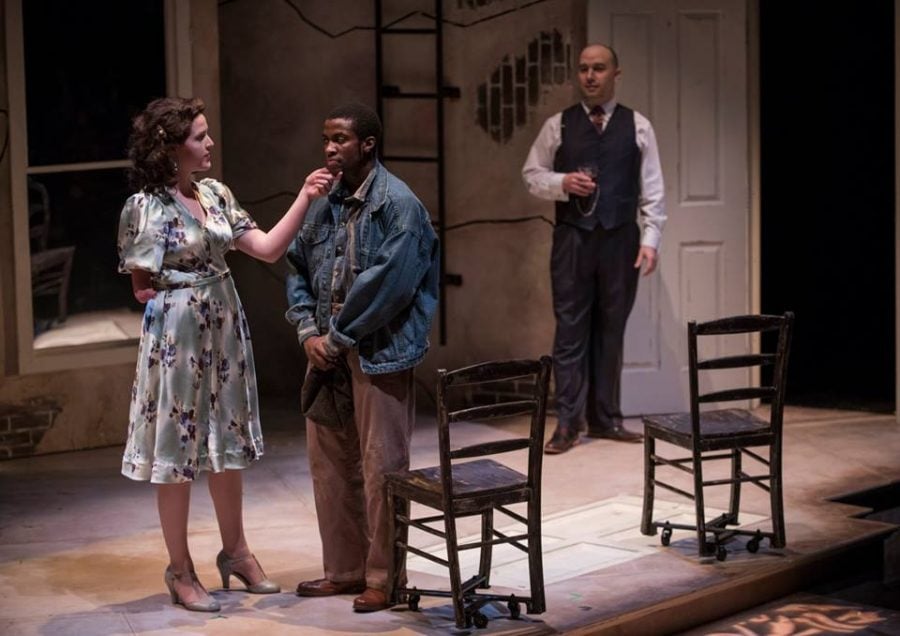
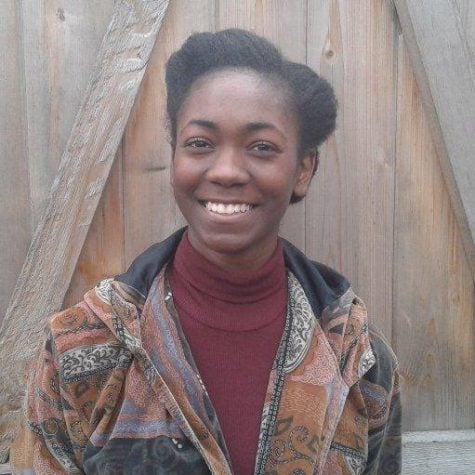


![DePaul sophomore Greta Atilano helps a young Pretty Cool Ice Cream customer pick out an ice cream flavor on Friday, April 19, 2024. Its the perfect job for a college student,” Atilano said. “I started working here my freshman year. I always try to work for small businesses [and] putting back into the community. Of course, interacting with kids is a lot of fun too.](https://depauliaonline.com/wp-content/uploads/2024/04/ONLINE_1-IceCream-300x200.jpg)
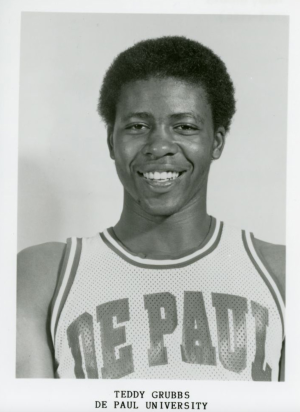
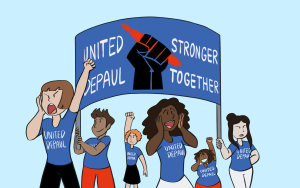

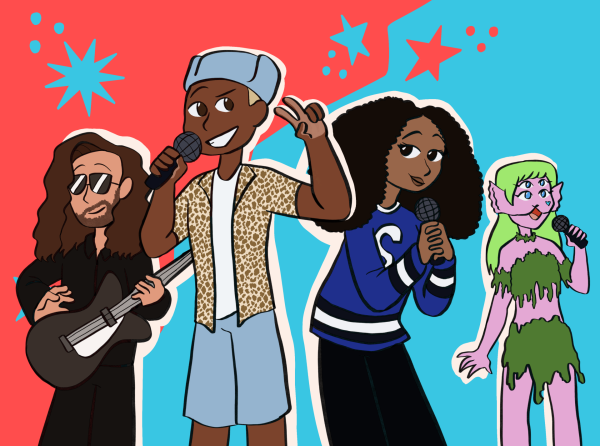
![DePaul sophomore Greta Atilano helps a young Pretty Cool Ice Cream customer pick out an ice cream flavor on Friday, April 19, 2024. Its the perfect job for a college student,” Atilano said. “I started working here my freshman year. I always try to work for small businesses [and] putting back into the community. Of course, interacting with kids is a lot of fun too.](https://depauliaonline.com/wp-content/uploads/2024/04/ONLINE_1-IceCream-600x400.jpg)
